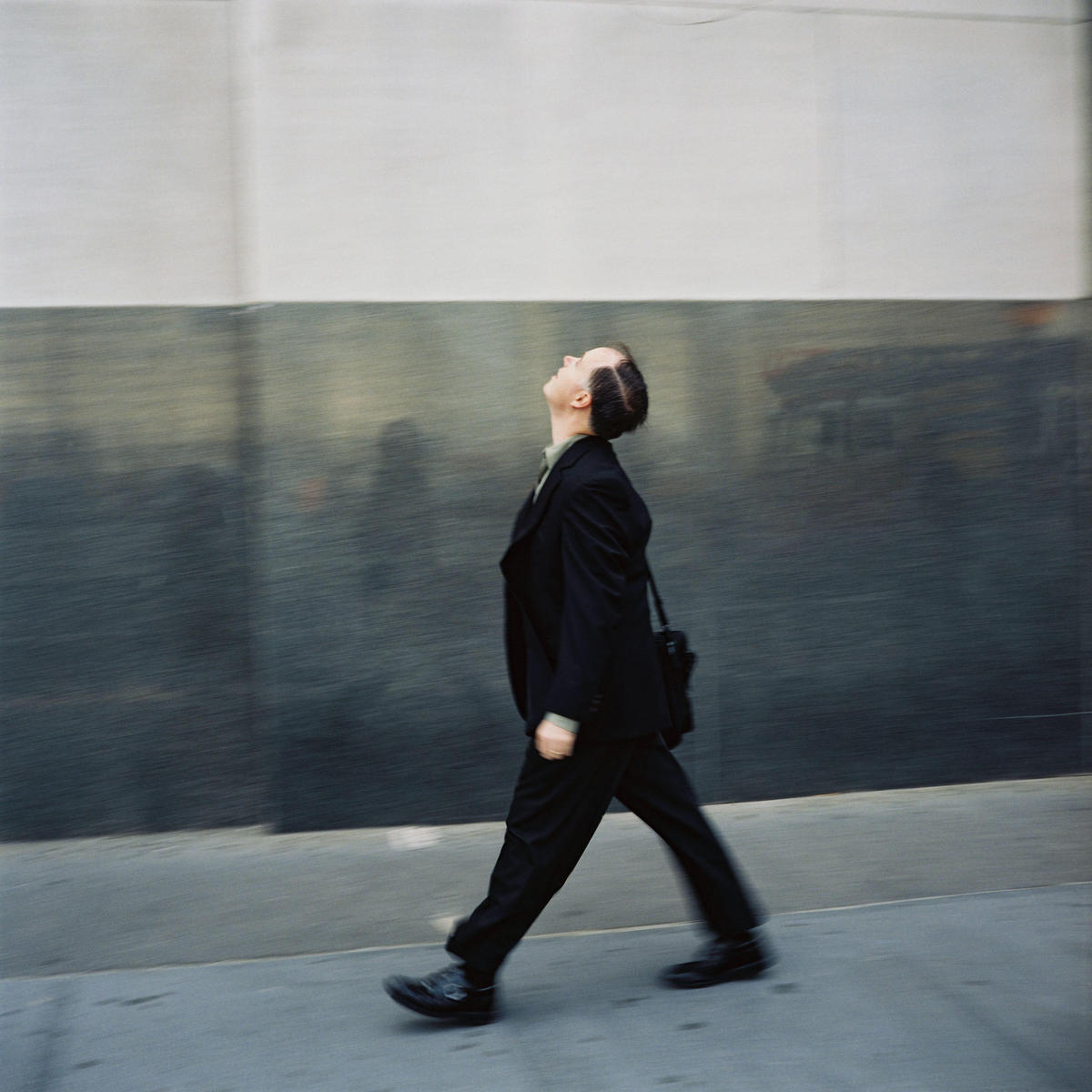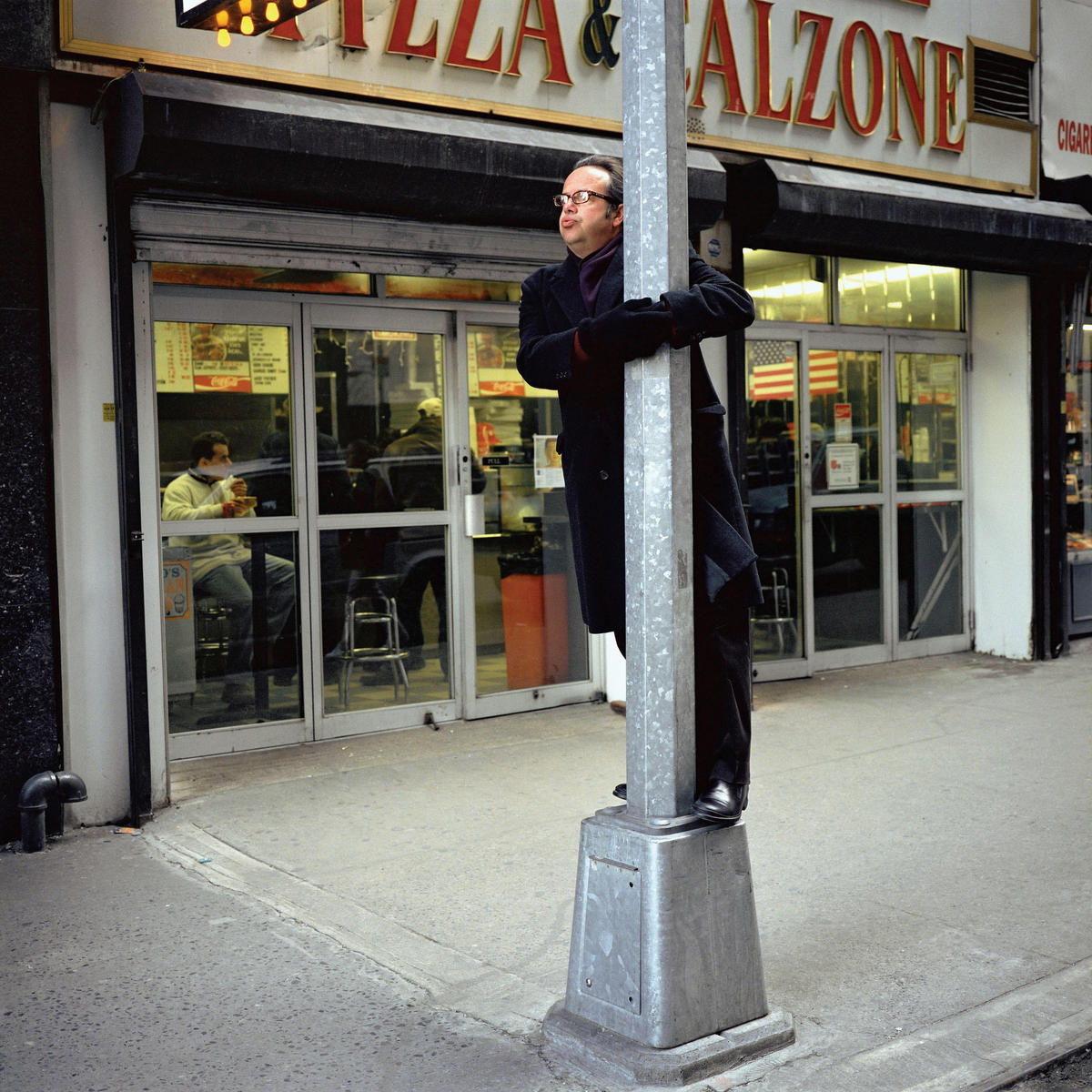
For many tourists, traveling to New York City is a voyage inside the TV. It is a pilgrimage to the mise en scène of countless television series and films — indeed to the physical space of fantasy. Certain tourist attractions literalize this feeling: Good Morning America, and Total Request Live invite you to wave, for an instant, out of the screen. In New York City, everything can become charged with a televised memory.
It’s like it was happening on TV, like it was a movie, like it wasn’t real. So many New Yorkers echo the same feeling about the events of September 11. The events — all of our language, every way we try to retell it, the narration becomes epic and filmic — and, by now, saccharine, generic, mythic. That looping image of the towers exploding — everyone, everywhere, was watching, over and over.
Nearly five years later, tourists still flock to Ground Zero, squinting in silence at informational placards attached to the “viewing fence.” A woman sobs as she stands with her three-year old daughter in front of the heading: “No history is without its heartache.” Her daughter dutifully looks up at the sign like it should be speaking to her. Her mother seems to misrecognize the vacant expression as the shock, the sadness of patriotic reality. She squeezes her daughter’s already tightly clenched hand even harder.
All cameras are pointed up. How do you photograph an absence? Tourists also zoom in on well-known images printed on the “historical” placards: memorial candles encircling a photo of the towers ablaze, “The Heroes” — you know the rest, as everyone does by now.
I look down into the concrete pit. It’s bizarrely vacant. The only person I see is a security guard walking up and down the temporary metal stairways. Gazing through the “viewing fence,” past the I-beam cross, I try to locate the site of the escalator I only ever stumbled upon by chance. Looking into this memory ditch, I try to remember what it was like to go up that escalator, tucked away behind, or in front of…it was always in shadows, there was a bridge, cars honking, around a corner the escalator opened directly onto the sidewalk, floating up the tunnel, an automatic revolving door, a series of vacant sky-walks, and then — all of a sudden — a shopping mall coliseum with palm trees and a stage and immense windows framing the glorious Hudson River. I used to love the way this space made everything seem totally containable. It was when the aesthetics of corporatism still held a secret awe, when it seemed sort of cool that even air and water were being commodified.
The palm trees, the stage, the shopping mall and the corporate village is still there. The World Financial Center is a survivor. But the approach, that wandering into sublime disorientation, is gone. Over there, I think, it was over there; no, over there. Over there is as precise as my memory gets, pointing into this pit. I too am sucked into a hazy void of nostalgic non-communication. Like the tourists I deride, I have been standing at Ground Zero hushed, traversing the foggy path of memory charted for us each day on Fox News or Oprah. We may not all be traveling through the same details, but the destination, a sacralized silence, is the same.
Susan Sontag, just days after 9/11, was able to write her notoriously incisive words because she was away, in Berlin. The words still ring true, even if they no longer seem so explosive: “We have a robotic president who assures us that America stands tall…The unanimity of the sanctimonious, reality-concealing rhetoric spouted by American officials and media commentators in recent days seems, well, unworthy of a mature democracy.” Upon her return home to New York, one month after penning those words and two weeks after they were printed in The New Yorker, she blamed her polemic on a TV “overdose,” from watching “CNN for 48 hours straight” directly following the attack. In a subsequent Salon.com interview with David Talbot, Sontag disengaged from her previous critique with zingers such as, “I’ll take the American empire any day over the empire of what my pal Chris Hitchens calls ‘Islamic fascism.’” While traveling from the alienating comfort of the American Academy in Berlin to an assaultive public in a glitched-up New York City, Sontag swung from a caustic attack on the hollow rhetoric of American pseudo-democracy to an apologia for imperialism.
What happens when disaster strikes at home while you’re “away”? Why do all of these people make this pilgrimage to visit my home, my Manhattan, in stagnant shambles? Tourism is supposed to be about escape, about skimming a location — a dream that flutters in the space between projection and materiality. At Ground Zero, disaster and tourism collide for reasons more spiritual: the diffusion of political dissent.
